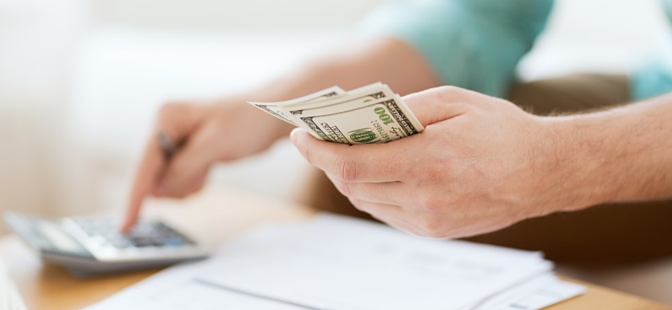According to a new study released by NerdWallet, the average American household currently holds $6,658 in credit card debt. This statistic is staggering; however, it only covers one type of debt: high interest credit card debt. Getting rid of this type of debt as fast as possible is important, but not all debt is created equal. Here are some instances when making early payments may not be the right move.
The No More Mortgage Crisis
A mortgage can be one of those debts that you should think twice about before paying it off early. The IRS gives good tax benefits to those who carry a mortgage. In 2015, they offered a standard deduction of $12,600 to couples filing joint and $6,300 to those filling single. Jeff Brown from Banking My Way brings up the point that, “Because the standard deduction is the same for everyone, regardless of income, it’s a bigger factor for people with lower incomes and less-expensive homes.” These deductions should be your first consideration if you are nearing your last years of mortgage payments and want to pay it off early.
If you still have 20+ years left on your mortgage and are struggling with the decision to put a little extra money towards it each month consider this situation: “According to historical records, the average annual return for the S&P 500 since its inception in 1928 through 2014 is approximately 10%” says J.B. Maverick of Investopedia. Currently mortgage rates are as low as 3.5%. If you take that extra payment and instead stick it in a fund that tracks the S&P 500, over a long period of time, that money will grow much faster than your mortgage would have shrunk.
No Interest, No Problem
Many credit card companies offer promotional periods where they don’t charge interest for a period of time to entice you to move your credit card balance to them. It may seem like a no brainer not to pay this debt off early, but credit card debt can be scary if not managed properly, regardless of the interest rate. One way to manage the interest rate properly is by hacking the system. If you carry your balance from one no interest credit card to the next then your interest rate will continue to be 0%. In this case, paying this debt off early is not in your best interest, no pun intended.
Richard Kelleher, a digital marketer in Phoenix, taps into his retirement savings in order to pay a large sum of money towards his debt. He says, “Yesterday, I paid off a $4,000 balance on a credit card that had no interest for another seven months. Why?” He is right; why would you do that? That retirement savings is now smaller, but for what purpose? The debt could have been handled in a less devastating financial manner.
If the Math Fits, Wear It
Amy Fontinelle from Bank Rate has a very logical way of thinking about debt and savings, she says,
“Suppose you have $10,000 of savings earning 0% interest and $10,000 of credit card debt costing 10% interest. Your net worth is zero, since $10,000 of assets minus $10,000 of liabilities equals zero. Each month, your net worth erodes further as you accrue interest on your debt faster than you earn it on your savings.”
Amy is telling us that it is important to know what your debt is costing you and then compare that to what your savings is earning you. For example, if you have a car loan that has a 2% interest rate, why pay it off early if you can instead invest that money and get a better return elsewhere. If you weigh these options, you can then make the best choices about your debt.
The Takeaway
All this being said, there is one thing that is important to ask yourself: What was it that got you into debt in the first place? Paying off debt is a really good feeling, but staying debt free will make you feel even better. So challenge yourself to answer this tough question and be willing to change the bad habits that may have formed. Then and only then can you truly make the best decisions about paying off your debt.
What debt habits have you been able to break?
Sources:
- https://www.nerdwallet.com/
- http://www.bankingmyway.com/real-estate/mortgages/how-find-mortgage-deductions-true-value
- http://www.investopedia.com/ask/answers/042415/what-average-annual-return-sp-500.asp
- http://money.usnews.com/money/personal-finance/articles/2016-04-15/the-pros-and-cons-of-paying-off-debts-early
- http://www.bankrate.com/finance/savings/should-you-pay-debt-before-saving-1.aspx

